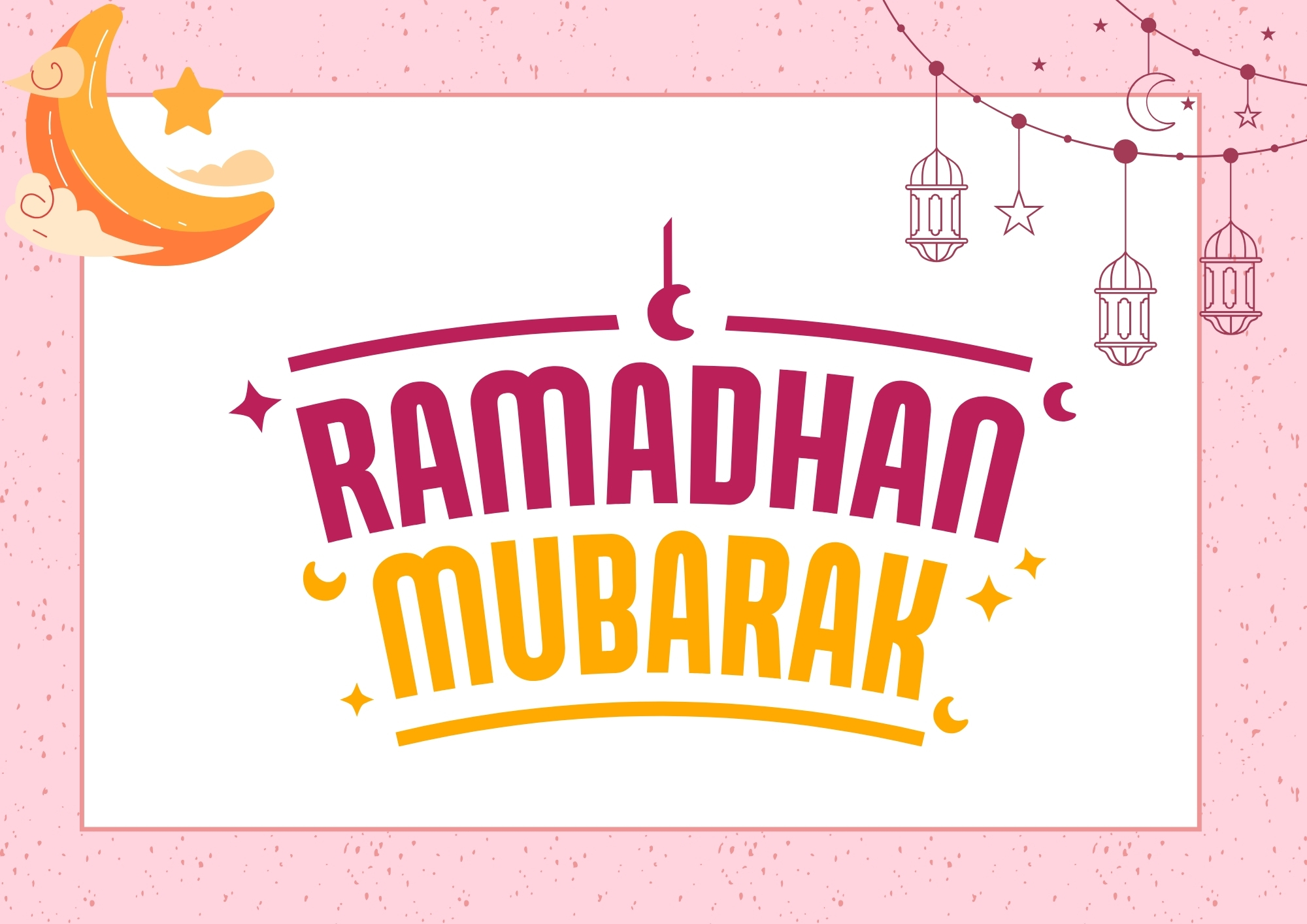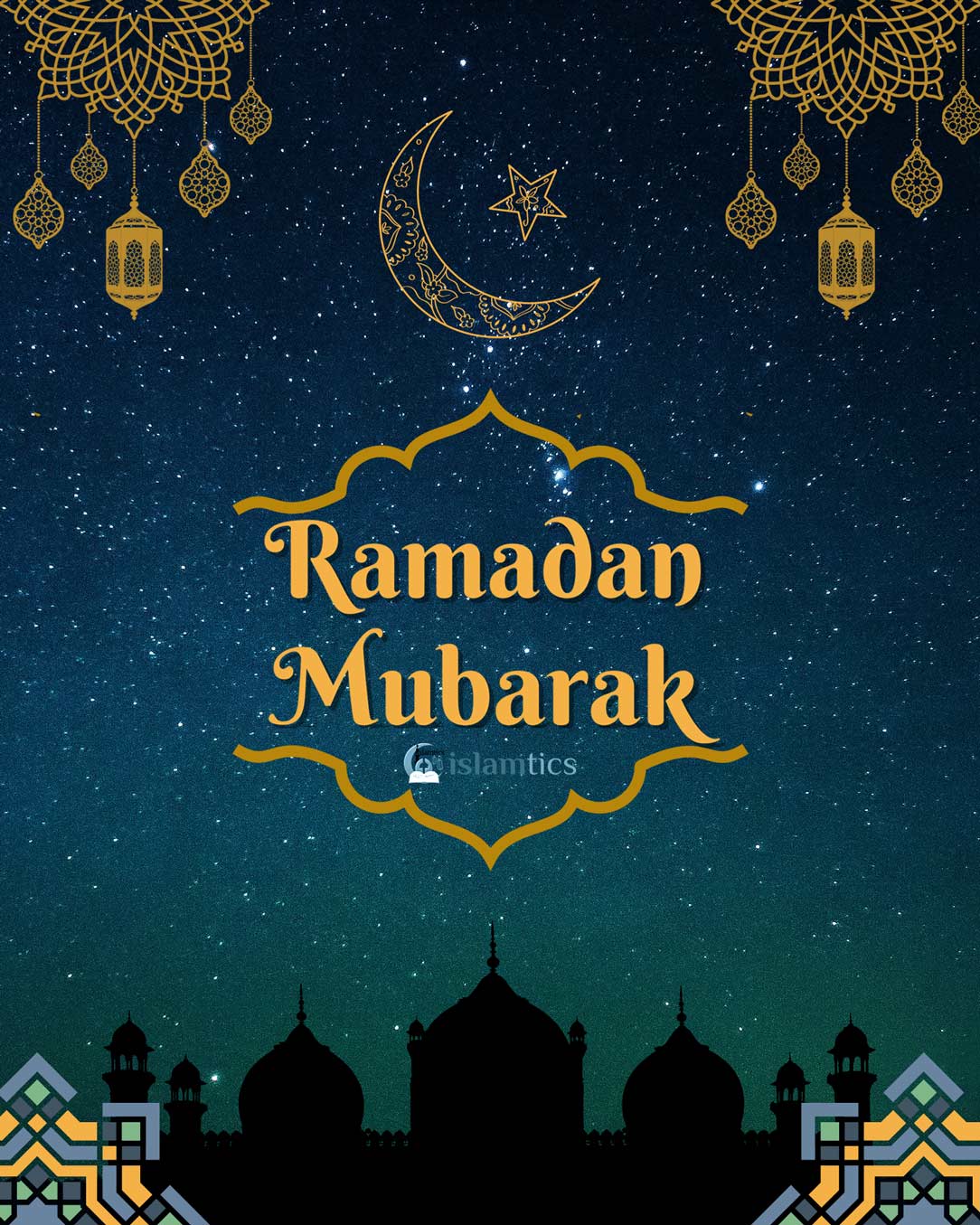As the holy month of Ramadan approaches, Muslims around the world prepare to embrace a time of reflection, devotion, and spiritual renewal. The phrase "Ramadan Mubarak" is often exchanged during this period, but what does it truly mean? Understanding the essence of this greeting can deepen your appreciation for the traditions and values of Ramadan.
The significance of Ramadan Mubarak meaning extends beyond just a simple greeting. It represents the blessings and goodwill Muslims share during this sacred month. In this article, we will explore the origins, cultural importance, and spiritual depth of this phrase, providing you with a comprehensive understanding of its relevance.
By the end of this article, you will gain insights into why Ramadan is celebrated, how it impacts Muslim communities globally, and how you can meaningfully engage with this tradition, whether you are a practitioner or simply curious about this important cultural event.
Read also:Understanding Food Stamp Number A Comprehensive Guide To Snap Benefits
Table of Contents
- The Origin and History of Ramadan
- Ramadan Mubarak Meaning Explained
- The Spiritual Significance of Ramadan
- Cultural Practices During Ramadan
- The Importance of Fasting in Ramadan
- Charity and Community in Ramadan
- Health Benefits of Fasting During Ramadan
- Ramadan Celebrations Around the World
- Tips for Non-Muslims During Ramadan
- Conclusion: Embracing the Spirit of Ramadan
The Origin and History of Ramadan
Ramadan is the ninth month of the Islamic calendar and holds immense significance for Muslims worldwide. Its origins trace back to the year 610 CE when the Prophet Muhammad received the first revelation of the Quran on the Night of Power (Laylat al-Qadr). This event marks the beginning of Islam and the annual observance of Ramadan.
Why Ramadan is Celebrated
Ramadan is not merely a time of fasting but also a period of spiritual growth and self-discipline. Muslims believe that during this month, the gates of heaven are opened, the gates of hell are closed, and devils are chained. It is a time to seek forgiveness, strengthen faith, and connect with the divine.
The month culminates in Eid al-Fitr, a joyous celebration marking the end of fasting. This festival brings communities together in prayer, feasting, and giving thanks.
Ramadan Mubarak Meaning Explained
The phrase "Ramadan Mubarak" translates to "Blessed Ramadan" in English. It is a common greeting used by Muslims to wish each other prosperity, blessings, and happiness during this holy month. The word "Mubarak" comes from the Arabic root "b-r-k," which means "to bless" or "to be blessed."
Other Greetings During Ramadan
While "Ramadan Mubarak" is widely used, there are other phrases like "Ramadan Kareem," which means "Generous Ramadan." Both greetings convey the same sentiment of wishing someone a fulfilling and rewarding Ramadan experience.
Here are some variations of Ramadan greetings:
Read also:Irvine Spectrum Movies Your Ultimate Guide To Entertainment
- Ramadan Kareem
- Kul 'am wa enta bi-khair (Every year and you are well)
- Eid Mubarak (used at the end of Ramadan)
The Spiritual Significance of Ramadan
Ramadan is a time for spiritual reflection and self-improvement. Muslims are encouraged to engage in acts of worship, such as increased prayer, recitation of the Quran, and acts of kindness. The focus is on purifying the soul and drawing closer to God.
Key Spiritual Practices During Ramadan
Some of the key spiritual practices during Ramadan include:
- Taraweeh prayers: Special nightly prayers performed in mosques.
- Quran recitation: Reading and reflecting on the holy text.
- Dua: Making heartfelt supplications to Allah.
These practices help Muslims strengthen their faith and develop a deeper connection with their Creator.
Cultural Practices During Ramadan
Beyond its spiritual aspects, Ramadan is rich in cultural traditions that vary across different regions. From family gatherings to communal iftar meals, the month is filled with moments of togetherness and joy.
Traditional Foods During Ramadan
Each culture has its unique dishes prepared for iftar, the meal that breaks the fast. Some popular foods include:
- Date palms: Traditionally eaten to break the fast.
- Hariyali chaat: A savory snack from India.
- Kunafeh: A sweet dessert from the Middle East.
These foods not only satisfy hunger but also bring people together in celebration.
The Importance of Fasting in Ramadan
Fasting is one of the Five Pillars of Islam and a central aspect of Ramadan. Muslims abstain from food, drink, and other physical needs from dawn until sunset. This practice teaches patience, humility, and empathy for those less fortunate.
Benefits of Fasting
Fasting during Ramadan offers several benefits, including:
- Enhancing self-discipline
- Promoting mindfulness
- Encouraging gratitude
It is a powerful tool for personal growth and spiritual development.
Charity and Community in Ramadan
Charity, or Zakat, is another pillar of Islam that becomes especially significant during Ramadan. Muslims are encouraged to give generously to those in need, fostering a sense of community and compassion.
Acts of Charity
Some common acts of charity during Ramadan include:
- Donating to local food banks
- Providing iftar meals for the less fortunate
- Supporting educational initiatives
These actions reflect the values of kindness and generosity that Ramadan embodies.
Health Benefits of Fasting During Ramadan
While fasting is primarily a spiritual practice, it also has numerous health benefits. Studies have shown that intermittent fasting can improve metabolic health, boost brain function, and enhance overall well-being.
Scientific Evidence
According to research published in the National Institutes of Health, fasting can lead to:
- Improved insulin sensitivity
- Reduced inflammation
- Increased cellular repair
These findings highlight the positive impact of fasting on physical health.
Ramadan Celebrations Around the World
Ramadan is celebrated in diverse ways across the globe, reflecting the rich cultural heritage of Muslim communities. From vibrant street festivals in Indonesia to serene mosque gatherings in Turkey, each region adds its unique flavor to the festivities.
Examples of Global Celebrations
Here are some examples of how different countries celebrate Ramadan:
- Egypt: Lanterns (Fanous) are a popular symbol of Ramadan.
- Morocco: Special dishes like harira soup are prepared for iftar.
- Saudi Arabia: The Grand Mosque in Mecca hosts thousands of worshippers daily.
These celebrations showcase the unity and diversity of the Muslim world.
Tips for Non-Muslims During Ramadan
If you are not Muslim but wish to show respect and understanding during Ramadan, here are some tips:
- Learn about the traditions and significance of Ramadan.
- Offer greetings like "Ramadan Mubarak" to your Muslim friends and colleagues.
- Be mindful of fasting hours and avoid eating or drinking in public spaces.
By being considerate and informed, you can foster mutual respect and appreciation.
Conclusion: Embracing the Spirit of Ramadan
Ramadan Mubarak meaning goes beyond a simple greeting; it encapsulates the essence of this holy month. It represents blessings, unity, and a commitment to spiritual growth. Whether you are a practicing Muslim or simply interested in learning more about this tradition, understanding the significance of Ramadan can enrich your perspective.
We invite you to share your thoughts and experiences in the comments below. Engage with our community by exploring other articles on our site and spreading the word about the beauty of Ramadan. Together, let's celebrate the spirit of this sacred month!



